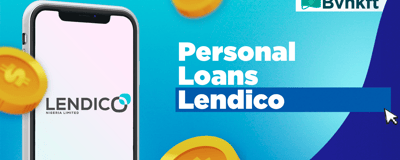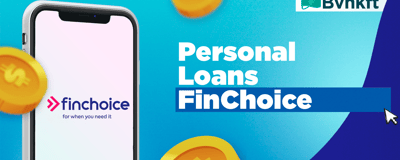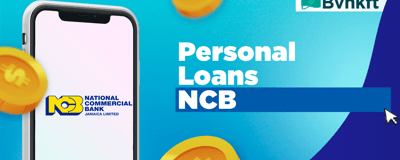Loan Options for Self-Employed: Unlocking Your Financial Potential

In the dynamic world of self-employment, financial independence is a key factor that allows individuals to pursue their passions and ventures. However, accessing loans can often prove to be a significant hurdle for many self-employed individuals. This blog post will explore the unique challenges faced by the self-employed when securing loans and provide a detailed overview of the options available to them. By understanding their financial health, tailoring their documentation, and exploring various types of loans, self-employed individuals can better navigate the lending landscape.
This guide aims to offer insights into the complexities of obtaining financing as a self-employed professional while offering practical approaches to improve their chances of securing the necessary funding. Whether you're looking to expand your business, purchase a home, or simply gain greater financial flexibility, knowing your options can be a game changer.
Join us as we unlock the financial potential of self-employment by exploring the various loan options that can help propel you towards your goals.
Why It's Challenging for Self-Employed Individuals to Get Loans

Self-employed individuals often find it challenging to secure loans because traditional lenders typically rely on stable, predictable income from employment history to assess creditworthiness. Unfortunately, self-employment income can be irregular and variable, making many lenders hesitant to extend credit.
Additionally, without the structured paychecks associated with traditional jobs, self-employed applicants may face difficulties in providing the documentation and proof of income that lenders require. This situation makes it crucial for self-employed individuals to understand how their unique financial situations can impact their borrowing potential.
- Lack of consistent income
- Difficulty in proving income stability
- Limited credit history if recently self-employed
- Higher perceived risk by lenders
These challenges make navigating the loan approval process daunting for self-employed individuals, but understanding them is the first step towards finding a solution.
Understanding Your Financial Health

Understanding your financial health is critical for any borrower, but it takes on added importance for those who are self-employed. Comprehensive knowledge of one’s income sources, expenses, debts, and assets can bolster one’s confidence when applying for loans and enhance one’s chances of approval.
Self-employed persons should review their financial statements regularly to maintain an accurate picture of their financial standing. This includes compiling documents such as tax returns, profit and loss statements, and bank statements, as these will help present a strong case to lenders.
Moreover, recognizing any financial gaps or weaknesses ahead of time allows self-employed individuals to address these issues, either by stabilizing their income or reducing unnecessary spending, all of which can improve their overall presentation to prospective lenders.
Documentation is Key

When seeking loans, especially to accommodate the unique situations of self-employed applicants, thorough and accurate documentation is essential. Lenders typically require more detailed information from these individuals compared to salaried employees. Having organized, up-to-date documents can significantly enhance one's credibility during the application process.
Key documents self-employed individuals should prepare include business tax returns for at least the past two years, profit and loss statements, cash flow statements, and personal bank statements. Having these readily available not only demonstrates financial stability but also showcases professionalism and preparedness.
- Two years of business tax returns
- Profit and loss statements
- Cash flow projections
- Personal bank statements
Being proactive in gathering and presenting these documents can aid in smoothening the lending process and improving the likelihood of approval.
Loan Options for Self-Employed Individuals

Despite the challenges, there are various loan options available for self-employed individuals that can cater to different financial needs. Understanding these options and how they work is crucial for making an informed decision.
It's essential for self-employed individuals to explore which type of loan aligns best with their financial goals, whether it’s for personal use, business investment, home purchase, or accessing lines of credit.
1. Personal Loans
Personal loans can be an excellent option for self-employed individuals, especially when they need quick access to cash for personal expenditures or emergencies. These loans are typically unsecured, meaning they do not require collateral, making them accessible even if the borrower does not have significant assets.
However, self-employed individuals must demonstrate their ability to repay through their income documentation, credit scores, and financial history. While some lenders may have stricter requirements, others may offer flexible terms based on the applicant's financial situation.
- Unsecured, no collateral required
- Ideal for personal emergencies
- Flexible terms with varying interest rates
By carefully comparing terms from different lenders, self-employed individuals can find a personal loan that suits their needs.
2. Business Loans
Self-employed individuals often require loans specifically for business purposes. Business loans can assist with funding for startup costs, inventory purchases, or expansion. These loans may be secured or unsecured, depending on the financial institution and the size of the loan.
To qualify for business loans, self-employment applicants usually need to provide a detailed business plan along with financial documents. Lenders want to understand how the funds will be used and what the potential for profitability is.
- Funding for startup costs and expansions
- Can be secured or unsecured
- Requires a solid business plan and financials
Securing a business loan may take effort, but it can provide the necessary boost to help self-employed individuals achieve their business goals.
3. Home Loans
Self-employed individuals looking to buy a home face unique challenges when applying for a mortgage. Lenders often require extensive documentation to verify income and may have stricter requirements than for traditional employment income applicants. However, various programs are available specifically for self-employed borrowers.
When applying for a home loan, it's important to shop around for lenders that understand the specific financial nuances of self-employed individuals and can offer tailored solutions that meet their needs.
Additionally, self-employed individuals should ensure that their credit score is in good standing and be prepared to present a comprehensive financial history that supports their ability to make consistent mortgage payments.
- Documentation of income over two years
- Higher interest rates may apply
- Credit score requirements often higher
By presenting their financial situation clearly and demonstrating credibility, self-employed individuals can navigate the mortgage process with greater success.
4. Lines of Credit
Lines of credit can provide essential financial flexibility for self-employed individuals, enabling them to draw on funds as required to manage both business and personal expenses. These revolving credit lines allow borrowers to access cash up to a predetermined limit without applying for a new loan each time.
Maintaining a good credit score and solid financial history is vital in securing a line of credit, as lenders often evaluate these aspects to determine eligibility and interest rates.
For self-employed individuals, lines of credit can assist with sporadic cash flow issues or unexpected expenses, making them a highly effective financial tool when managed properly.
Tips for Improving Your Chances

To improve the chances of securing a loan, self-employed individuals can take specific steps to bolster their application. Preparing thoroughly and presenting their financial situation transparently can make a significant difference in how lenders perceive their risk.
Maintaining a solid credit score, gathering necessary documentation comprehensively, and being forthcoming about their income streams will all enhance credibility and likelihood of loan approval.
- Maintain and monitor a good credit score.
- Gather all necessary financial documentation.
- Prepare a clear plan on how the loan will be utilized.
By following these steps, self-employed individuals will be well-equipped to approach lenders confidently.
Conclusion

In conclusion, while self-employed individuals face unique challenges when seeking loans, understanding their financial health and preparing the necessary documentation can greatly enhance their chances of approval. The key is to present oneself as a reliable borrower capable of repaying the loan based on a solid understanding of their income, expenses, and debts.
By exploring various loan options—such as personal loans, business loans, home loans, and lines of credit—self-employed individuals can find suitable financial solutions tailored to their needs. With the right approach and careful planning, they can unlock their financial potential and achieve their personal and business goals successfully.
As the economy continues to evolve, the financial needs of self-employed individuals will persist. Equipping oneself with knowledge and various financing options will ensure that they remain resilient and prepared for any financial endeavors in the future.






